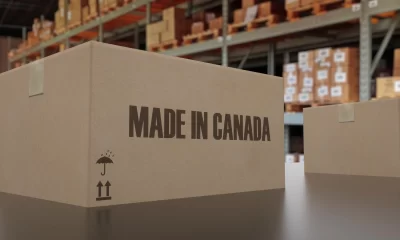Business
Portuguese Parliament Approves Decriminalization of Synthetic Drugs

Portugal approved the decriminalization of synthetic drugs, The Portugal News reports. Portugal has had the most liberal approach to all drugs across Europe for decades. The drug strategy, put in place in 2000 and enacted in July 2001, was initially created to reduce the HIV/AIDS toll stemming from intravenous drug use cases using a harm reduction model. (In 1999, Portugal had the highest rate of HIV amongst such drug users in the European Union.) Their policy included decriminalizing personal drug possession and would influence similar efforts in places such as Oregon. And it worked, at least at drastically reducing HIV rates. As The Washington Post reports, HIV transmission rates via syringes plummeted.
However, while drugs are decriminalized for those who enjoy them, their policies maintain criminal penalties for drug trafficking. So basically, you can get in trouble if you supply, but not if you use. Anyone familiar with how drug culture works can understand that while the goal is admirable, this approach is far from perfect if the true goal is to protect the public’s health. People will always find a way to get drugs whether their suppliers get arrested or not. But what such suppliers are selling is changing.
Synthetic drugs are artificially modified from naturally-occurring substances. For example, fentanyl is a synthetic opioid. The new law equates the legal approach to these substances with that of “classic drugs” like cannabis, heroin, and cocaine. The debate regarding synthetic drugs that led to their decriminalization centered on these new substances’ adverse effects on communities. While Portugal’s laws offered hope to harm reductionists worldwide, as The Washington Post notes, unfortunately, due to more recent and deadlier drugs, and other factors, the country still has drug problems. Drug use is apparently more visible on the streets than ever, and interest in offering help for substance use disorders seems to be dwindling.
“At the end of the day, the police have their hands tied,” said António Leitão da Silva, chief of Municipal Police of Porto, adding the matter now is much like the years before decriminalization was implemented in 2000.
“Twenty-seven years later, it is necessary to change the current legal framework in order to cover this new and harsh reality,” social democratic deputy Sara Madruga da Costa said, calling back to the 2000 law, adding they plan to provide a “faster response and more effective response to this complex and alarming phenomenon” which mainly affects Madeira and the Azores regions in Portugal.
Madruga da Costa says that the distinction between consumer and dealer “is fundamental” to combat the horrors of synthetic drugs by applying their current laws to newer drugs. In addition to decriminalizing synthetic drugs, the text further eliminates the criteria based on the number of doses, or amount of drugs, to distinguish between consumers and traffickers (i.e. who can get arrested). However, it still aims to differentiate one from the other, so suppliers can’t relax yet.
Cláudia Santos, deputy of the PS (Portuguese Socialist Party), noted that 23 years ago, the “historic decision” was made to decriminalize the possession of drugs for consumption in Portugal. Despite this legislature, from 2009 onward, the number of citizens convicted of crimes of consumption went up. “With this project, we want to reaffirm the option made for the prevention and treatment of consumers,” said the PS parliamentarian, considering that possessing drugs for consumption “should not be a crime,” The Portugal News reports.
Part of Portugal’s drug policy has always included treatment, and they hope to offer care more than ever, as psychiatric hospitalization due to unhealthy use of synthetic drugs has spiked, Business Insider reports. However, their system is far from perfect. There are currently year-long waits for state-funded rehabilitation treatment.
You should know that while the country developed a progressive drug policy reputation early on, cannabis remains illegal.
Source: https://hightimes.com/news/portuguese-parliament-approves-decriminalization-of-synthetic-drugs/
Business
New Mexico cannabis operator fined, loses license for alleged BioTrack fraud

New Mexico regulators fined a cannabis operator nearly $300,000 and revoked its license after the company allegedly created fake reports in the state’s traceability software.
The New Mexico Cannabis Control Division (CCD) accused marijuana manufacturer and retailer Golden Roots of 11 violations, according to Albuquerque Business First.
Golden Roots operates the The Cannabis Revolution Dispensary.
The majority of the violations are related to the Albuquerque company’s improper use of BioTrack, which has been New Mexico’s track-and-trace vendor since 2015.
The CCD alleges Golden Roots reported marijuana production only two months after it had received its vertically integrated license, according to Albuquerque Business First.
Because cannabis takes longer than two months to be cultivated, the CCD was suspicious of the report.
After inspecting the company’s premises, the CCD alleged Golden Roots reported cultivation, transportation and sales in BioTrack but wasn’t able to provide officers who inspected the site evidence that the operator was cultivating cannabis.
In April, the CCD revoked Golden Roots’ license and issued a $10,000 fine, according to the news outlet.
The company requested a hearing, which the regulator scheduled for Sept. 1.
At the hearing, the CCD testified that the company’s dried-cannabis weights in BioTrack were suspicious because they didn’t seem to accurately reflect how much weight marijuana loses as it dries.
Company employees also poorly accounted for why they were making adjustments in the system of up to 24 pounds of cannabis, making comments such as “bad” or “mistake” in the software, Albuquerque Business First reported.
Golden Roots was fined $298,972.05 – the amount regulators allege the company made selling products that weren’t properly accounted for in BioTrack.
The CCD has been cracking down on cannabis operators accused of selling products procured from out-of-state or not grown legally:
- Regulators alleged in August that Albuquerque dispensary Sawmill Sweet Leaf sold out-of-state products and didn’t have a license for extraction.
- Paradise Exotics Distro lost its license in July after regulators alleged the company sold products made in California.
Golden Roots was the first alleged rulebreaker in New Mexico to be asked to pay a large fine.
Source: https://mjbizdaily.com/new-mexico-cannabis-operator-fined-loses-license-for-alleged-biotrack-fraud/
Business
Marijuana companies suing US attorney general in federal prohibition challenge

Four marijuana companies, including a multistate operator, have filed a lawsuit against U.S. Attorney General Merrick Garland in which they allege the federal MJ prohibition under the Controlled Substances Act is no longer constitutional.
According to the complaint, filed Thursday in U.S. District Court in Massachusetts, retailer Canna Provisions, Treevit delivery service CEO Gyasi Sellers, cultivator Wiseacre Farm and MSO Verano Holdings Corp. are all harmed by “the federal government’s unconstitutional ban on cultivating, manufacturing, distributing, or possessing intrastate marijuana.”
Verano is headquartered in Chicago but has operations in Massachusetts; the other three operators are based in Massachusetts.
The lawsuit seeks a ruling that the “Controlled Substances Act is unconstitutional as applied to the intrastate cultivation, manufacture, possession, and distribution of marijuana pursuant to state law.”
The companies want the case to go before the U.S. Supreme Court.
They hired prominent law firm Boies Schiller Flexner to represent them.
The New York-based firm’s principal is David Boies, whose former clients include Microsoft, former presidential candidate Al Gore and Elizabeth Holmes’ disgraced startup Theranos.
Similar challenges to the federal Controlled Substances Act (CSA) have failed.
One such challenge led to a landmark Supreme Court decision in 2005.
In Gonzalez vs. Raich, the highest court in the United States ruled in a 6-3 decision that the commerce clause of the U.S. Constitution gave Congress the power to outlaw marijuana federally, even though state laws allow the cultivation and sale of cannabis.
In the 18 years since that ruling, 23 states and the District of Columbia have legalized adult-use marijuana and the federal government has allowed a multibillion-dollar cannabis industry to thrive.
Since both Congress and the U.S. Department of Justice, currently headed by Garland, have declined to intervene in state-licensed marijuana markets, the key facts that led to the Supreme Court’s 2005 ruling “no longer apply,” Boies said in a statement Thursday.
“The Supreme Court has since made clear that the federal government lacks the authority to regulate purely intrastate commerce,” Boies said.
“Moreover, the facts on which those precedents are based are no longer true.”
Verano President Darren Weiss said in a statement the company is “prepared to bring this case all the way to the Supreme Court in order to align federal law with how Congress has acted for years.”
While the Biden administration’s push to reschedule marijuana would help solve marijuana operators’ federal tax woes, neither rescheduling nor modest Congressional reforms such as the SAFER Banking Act “solve the fundamental issue,” Weiss added.
“The application of the CSA to lawful state-run cannabis business is an unconstitutional overreach on state sovereignty that has led to decades of harm, failed businesses, lost jobs, and unsafe working conditions.”
Business
Alabama to make another attempt Dec. 1 to award medical cannabis licenses

Alabama regulators are targeting Dec. 1 to award the first batch of medical cannabis business licenses after the agency’s first two attempts were scrapped because of scoring errors and litigation.
The first licenses will be awarded to individual cultivators, delivery providers, processors, dispensaries and state testing labs, according to the Alabama Medical Cannabis Commission (AMCC).
Then, on Dec. 12, the AMCC will award licenses for vertically integrated operations, a designation set primarily for multistate operators.
Licenses are expected to be handed out 28 days after they have been awarded, so MMJ production could begin in early January, according to the Alabama Daily News.
That means MMJ products could be available for patients around early March, an AMCC spokesperson told the media outlet.
Regulators initially awarded 21 business licenses in June, only to void them after applicants alleged inconsistencies with how the applications were scored.
Then, in August, the state awarded 24 different licenses – 19 went to June recipients – only to reverse themselves again and scratch those licenses after spurned applicants filed lawsuits.
A state judge dismissed a lawsuit filed by Chicago-based MSO Verano Holdings Corp., but another lawsuit is pending.
Source: https://mjbizdaily.com/alabama-plans-to-award-medical-cannabis-licenses-dec-1/
-

 Business2 years ago
Business2 years agoPot Odor Does Not Justify Probable Cause for Vehicle Searches, Minnesota Court Affirms
-

 Business2 years ago
Business2 years agoNew Mexico cannabis operator fined, loses license for alleged BioTrack fraud
-

 Business2 years ago
Business2 years agoAlabama to make another attempt Dec. 1 to award medical cannabis licenses
-

 Business2 years ago
Business2 years agoWashington State Pays Out $9.4 Million in Refunds Relating to Drug Convictions
-

 Business2 years ago
Business2 years agoMarijuana companies suing US attorney general in federal prohibition challenge
-

 Business2 years ago
Business2 years agoLegal Marijuana Handed A Nothing Burger From NY State
-

 Business2 years ago
Business2 years agoCan Cannabis Help Seasonal Depression
-

 Blogs2 years ago
Blogs2 years agoCannabis Art Is Flourishing On Etsy













